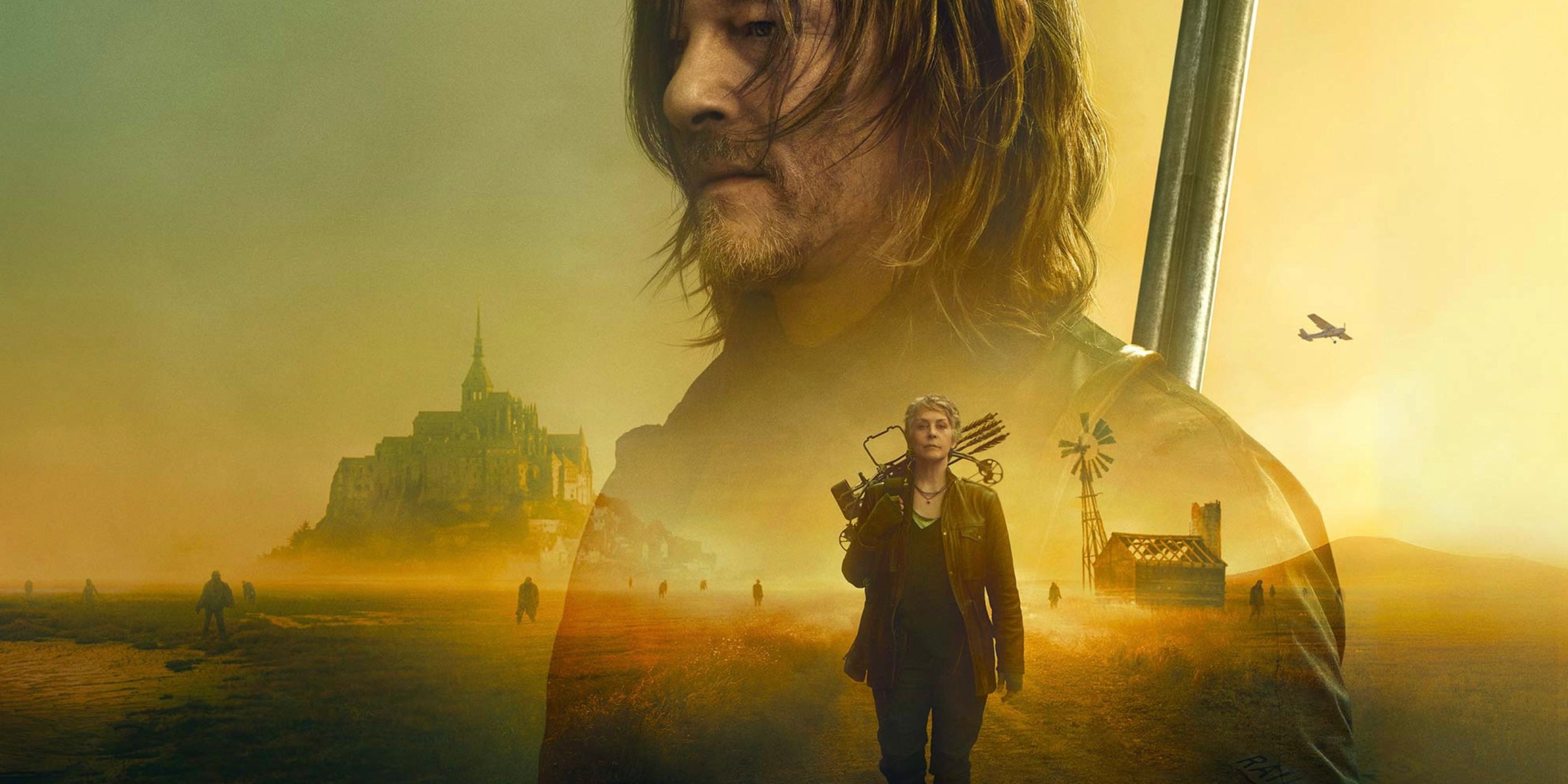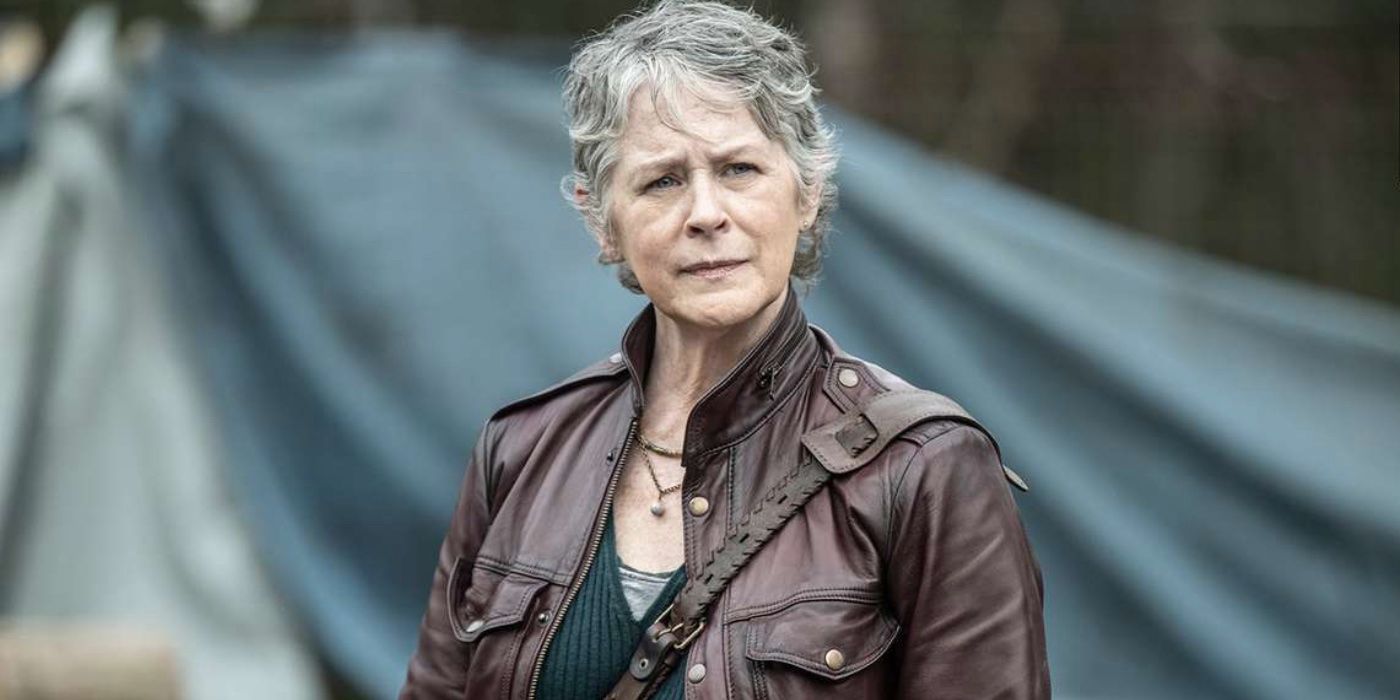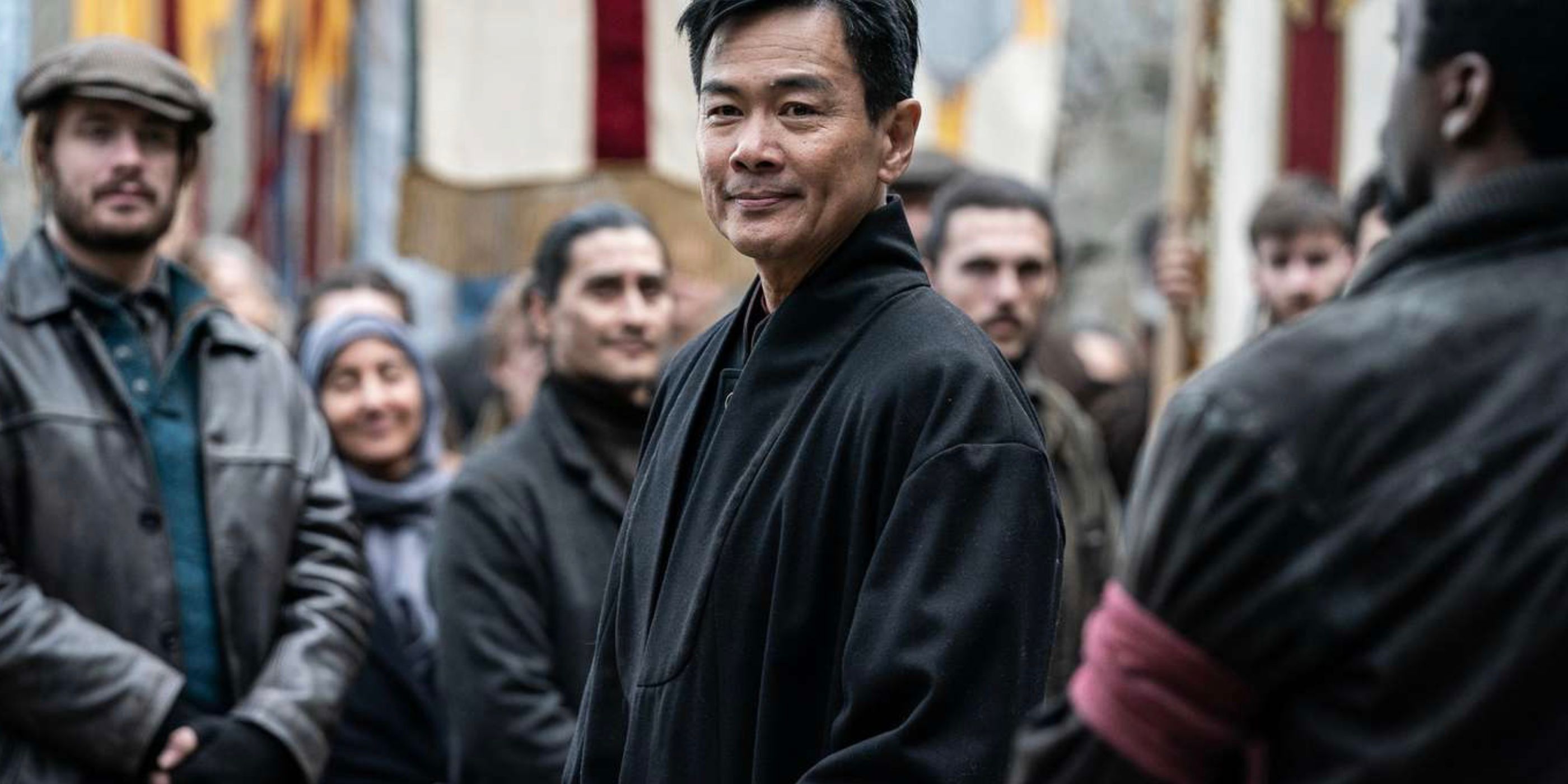The first season of The Walking Dead: Daryl Dixon was a success among critics and viewers -- despite its flaws. It finally got The Walking Dead franchise out of North America and captured how cultural differences create unique apocalyptic circumstances. And it was also essentially a set-up for Melissa McBride's unsurprising return as Carol Peletier. McBride and Norman Reedus had emotionally-burning chemistry as the platonic (or maybe non-platonic) survivors throughout The Walking Dead's 11 seasons, and the idea was that Daryl Dixon wouldn't disturb such dynamite.

Season 2 of Daryl Dixon, subtitled The Book of Carol, is a sentimental runway for Daryl and Carol. As usual, their characters receive profound arcs bewitched by unimaginable grief and tumultuous love -- but when their metaphorical plane into the sunset takes off, the remarkable supporting characters are left behind. The tragedy of a country with a history of fighting against fascism falling to a modern autocratic movement is still present with hints of a religious twist, but fizzles out over the season's six episodes. The culprit appears to be that the story was redesigned to incorporate Carol. To accelerate her back to Daryl's side, other elements had to be sacrificed. What made Season 1 promising and different from its Walking Dead competitors is now collateral damage. A reccurring theme of The Book of Carol is that everyone has a chance to start over, but the series is too stuck in the past of The Walking Dead's glory days to secure an original future.
Daryl Dixon Season 2 Leans Into the Cautionary Tale About Messiahs
The Book of Carol Plays Its Religious Themes... Safely
Creator and showrunner David Zabel has the tricky job of connecting two extremely detached storylines: Carol's venture to find Daryl and the conflict in France. Zabel does fine work overlapping the two for a cohesive narrative, but The Book of Carol hardly touches the surface of the war's political and personal context. Still, it's enough. At the end of Season 1, the religious movement known as the Union of Hope was the clear favorite -- while The Power of the Living, led by Madame Genet, were the nihilist villains. The Book of Carol levels the playing field with a story of manipulated faith. Laurent Carrier's role as a messiah in the making is less about hope this season, and more about the danger of playing God. The Union of Hope's storyline slowly builds a panicky restlessness that debates belief vs. evidence, and warns against those pulling the strings behind the scenes.
This is fascinating, loaded material that The Book of Carol flirts with for the first four episodes. Joel de la Fuente pulls out a scarily charismatic performance as Losang, the Union of Hope's ambitious, yet tempered leader. His affluent antithesis Genet is refined by Anne Charrier's poignant performance and supplemented depth to her character. A great improvement from the previous season is that everyone's motivations are much more apparent. Middle of the road players may be stuck in a situation they don't agree with and others will naturally change their minds, but The Book of Carol is never confused about the obligations of characters.
However, The Book of Carol is stubborn about playing it safe with this messiah storyline. Laurent's unusual birth was a subject of criticism in Season 1 -- but only because the show didn't confidently deliver this bizarre plot. A story of this grand scale isn't something The Walking Dead universe is used to, yet that doesn't mean it should never widen its lense. The Book of Carol is more confident, but still passive about it. There's a reluctance to fully commit to a story about the risks of religious fanaticism. Isabelle Carrier is a perfect gateway to this type of storyline, but her presence in the series is frustratingly pinned back.
The Return of Carol Has Its Ups and Downs
Carol's Presence in Season 2 Has Its Benefits and Drawbacks

What made Clémence Poésy as Isabelle a standout was that she was the most sharply written character in Season 1. Being a professional thief turned nun is more exciting than a grungy man stuck in the "badass caretaker" trope. Poésy delivers one of the most emotional performances in a particular episode of Season 2, but isn't given the same sharp material from Season 1. It's hard to say this, but it's because The Book of Carol fails to allow two female characters to share the spotlight together.
There is almost nothing bad about Carol's storyline in this series. Zabel treats Carol as The Walking Dead did -- with grace and passionate depth. Carol's conflicted friendship with a new character, Ash, places her in a smooth rhythm that forces her to confront an unresolved part of her past and her teetering moral code. But is it too much to ask that Isabelle, who also happens to be close to Daryl, not be downgraded to uplift another female character? Can Daryl not have more than one friend who happens to be a woman, and can these women not exist without Daryl as a backbone?
Supporting characters in general aren't taken into consideration with Carol on board. Treating the supporting cast as set pieces in favor of boosting Reedus and McBride creates a flat narrative about two characters, while still watchable, that have been established for nearly 15 years. Reused beats rampage The Book of Carol when it's ignoring the opportunity to let supporting characters be active. Villain Stéphane Codron (played by Romain Levi) is more well-developed than most, with his personality shining through and rising from the oppressive stoic soldier he was in Season 1. He's a prime example of how supporting characters are essemtial to a series -- no matter how big or beloved the protagonists are. Imagine The Walking Dead as just about Rick Grimes, or Lost as just Jack Shephard's story. It wouldn't work, because secondary characters add dimension in places the main characters can't explore.
Daryl Dixon Is Still an Ambitious Love Letter to Apocalyptic France
The Book of Carol's Production Builds an Invigorating Atmosphere

Continuing from Season 1, The Book of Carol astonishes with world-building and production. The cinematography is more laid back, but still beautiful. The advantage of filming on location is that the series sucks viewers into this apocalyptic world in iconic French locations that weren't previously explored in Season 1. The environments aren't just eye candy, though. The directors creatively use them to raise the stakes in claustrophobic action scenes. And the action is never sparse in this series; every fight scene incorporates different choreography and a directing style to freshen up the human-on-human or human-on-zombie action.
An issue with a zombie franchise that's been around for quite some time is that the creatures that once served as the danger aren't going to be dangerous anymore. Daryl Dixon's solution is to revamp the walkers with new abilities and powers, and sometimes it's silly in logic but visually cool. New walkers this season showcase the grotesquerie of untouched landscapes where nature takes over. It's impressive when there are new ways to make the environment an enemy itself, bringing back man vs. nature themes that were heavily present in the first few seasons of The Walking Dead.
Daryl Dixon Season 2's overall commitment to representing France as truly as possible is admirable. Characters speak in French when English isn't necessary and there's funny banter between characters from different European cultures. And when it feels like every French person either supports religious fanaticism or fascism, The Book of Carol turns the tables to show everyday people just trying to get by. It's not perfect by any means. Some jokes about American vs. French culture and politics don't translate well. One can't help but think that to completely commit to a show based in France, it should have at least one French writer.
Season 2 Takes the Good of The Walking Dead and the Bad of the Spinoffs
Daryl Dixon Can't Decide What Type of Show It Wants to Be
The Book of Carol actively tries to blend nostalgia and novelty, and it can be a trial to watch. The show is more personal and emotionally in tune, capitalizing on The Walking Dead's longstanding devotion to exploring different responses to grief. In that sense, The Book of Carol is a special addition to the franchise. But there's this nagging feeling that Carol is inorganically thrust into the show. McBride and Reedus are a rarity together, mostly when they convey trauma and sorrow through shaken body language and tears. But it's baffling when Carol is placed in a situation for the sake of convenience, or she suddenly becomes an incredibly important person to people who shouldn't care about her.
This erratic form of storytelling gives the show no time to breathe and rushes this era of the series to the finish line. The franchise has seen this show before; The Book of Carol follows the structure of The Ones Who Live nearly to a tee, but its main characters aren't written with the same charismatic qualities as Rick and Michonne. Rest assured, after nearly 15 years of playing these characters, Reedus and McBride know the ins and outs in order to exhibit all of their facets perfectly. But Daryl and Carol work best as supporting characters. Daryl becomes a victim of these circumstances when all the developments he made in Season 1 are subverted, leaving him right back at square one.
The Book of Carol upholds the strengths of The Walking Dead but the weaknesses of the spinoffs. The emotional brilliance of the series is a testament to The Walking Dead’s appreciation for grounded character pieces in a wild genre. Undermining this greatness is a hastiness to make its crossover characters the only ones worth following -- something The Walking Dead: Dead City also struggles with. By the finale, it's unclear what the story is supposed to be about. Everything that was good about Season 1 is gone, but maybe The Book of Carol is just an awkward transition period for Season 3 to reach its full potential. Yet the series seems bent on doing the one thing it tried to avoid in Season 1: Americanizing the Walking Dead European Tour. At some point, the formula -- no matter how much energy it contains -- has to change. Otherwise, The Walking Dead: Daryl Dixon will end up taking Daryl's mantra of "the last man standing" too literally.



